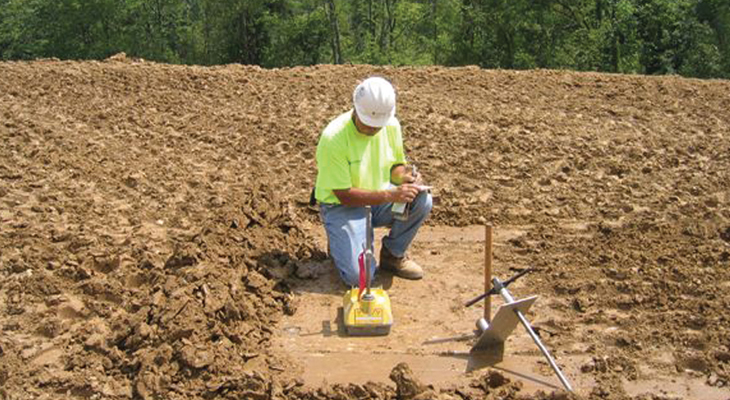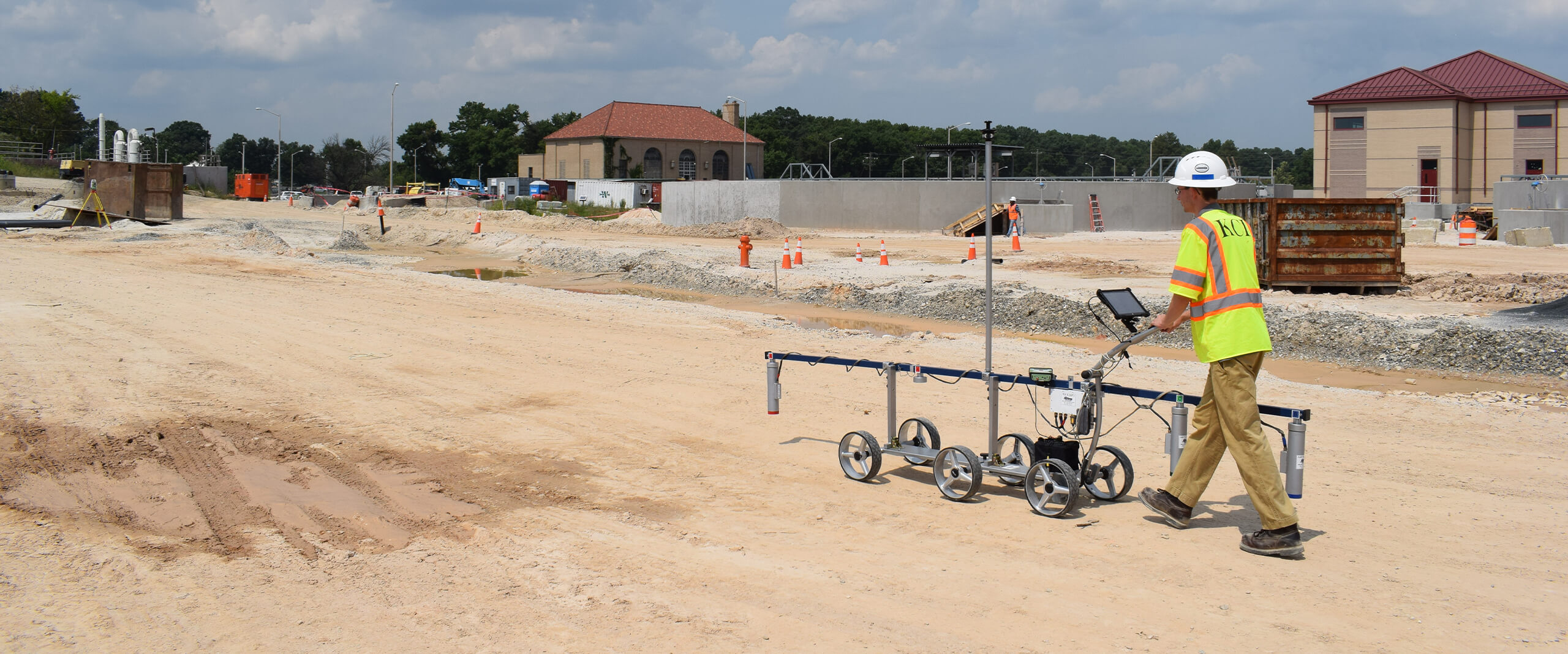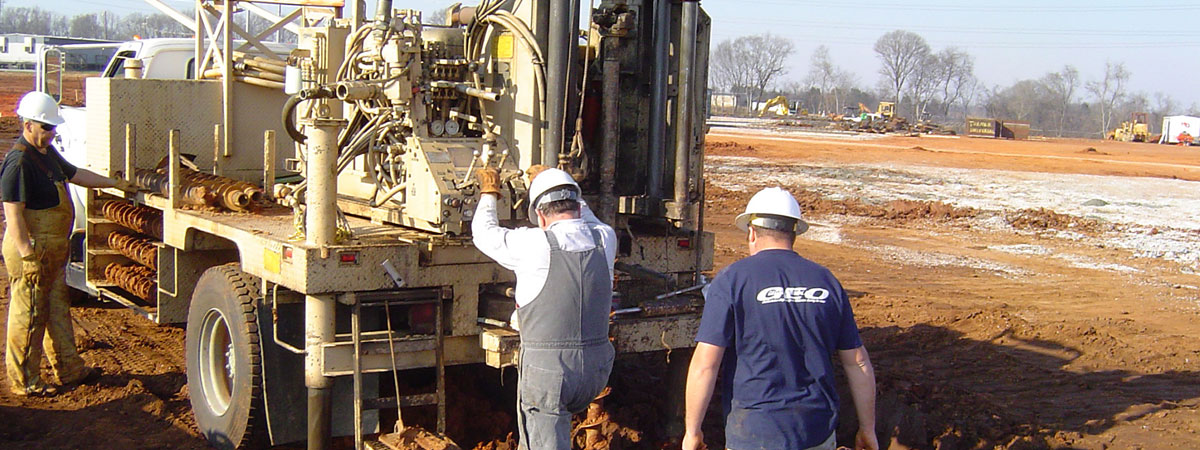Geo Tech Engineer: Enhancing Site Analyses with Advanced Geotechnical Techniques
Geo Tech Engineer: Enhancing Site Analyses with Advanced Geotechnical Techniques
Blog Article
The Interdisciplinary Approaches in the Geotechnical Sector: Bridging the Space In Between Design, Geology, and Environmental Scientific Research for Optimum Task Results
The assimilation of engineering, geology, and ecological science within the geotechnical market is not just helpful; it is necessary for attaining ideal project outcomes. What strategies might arise to promote this essential partnership and enhance the effectiveness of geotechnical methods?
Relevance of Interdisciplinary Cooperation
The value of interdisciplinary collaboration in the geotechnical industry can not be overstated. Reliable geotechnical tasks call for the assimilation of diverse competence from various fields, including engineering, geology, and environmental scientific research. This partnership ensures that all elements of a job are taken into consideration, resulting in comprehensive services that deal with complex difficulties.
When working in isolation,Interdisciplinary cooperation promotes development by enabling professionals to share understandings and methodologies that might not be evident. By leveraging the strengths of numerous techniques, teams can identify potential dangers, optimize layout processes, and enhance the sustainability of geotechnical tasks. Additionally, such collaboration advertises a holistic understanding of site-specific problems, which is crucial for precise assessment and decision-making.
The intricacy of geotechnical projects necessitates a collaborated strategy to analytic. Ultimately, interdisciplinary cooperation is important for advancing finest practices and achieving excellence in the geotechnical market.
Key Duties of Each Technique
Partnership among different techniques is not just helpful; it is vital for the successful implementation of geotechnical projects. Each self-control-- design, geology, and ecological scientific research-- plays a distinctive yet interconnected role that adds to predict efficiency and sustainability.
Geotechnical engineers are mostly accountable for creating structures and guaranteeing architectural honesty. They assess dirt and rock homes to examine load-bearing capabilities, offering crucial information for risk-free construction methods. Their competence allows the solution of innovative options to complex challenges.

Ecological researchers evaluate the potential impacts of building on ecosystems and water sources. They carry out ecological assessments and develop reduction techniques to lessen negative impacts. By integrating ecological considerations, they guarantee compliance with laws and advertise sustainability throughout the project lifecycle.
Case Researches of Effective Integration
Successful assimilation of geotechnical self-controls can be exhibited via numerous study that highlight the performance of synergy in dealing with complex design obstacles. One remarkable instance is the building of the Hong Kong-- Zhuhai-- Macau Bridge, where a collective approach including geotechnical design, geology, and environmental scientific research was crucial. Rock hounds and engineers functioned in unison to evaluate the seabed problems and enhance the structure layout, making sure security and reducing ecological impact.
One more impactful case is the enhancement of slope security in the San Francisco Bay Location, where find this an interdisciplinary group integrated geotechnical analysis with ecological evaluations. By incorporating hydrological researches and geological surveys, the team efficiently recognized potential landslide dangers and implemented reliable mitigation measures, enhancing security and sustainability.
In addition, the redevelopment of Brownfield sites typically calls for a multidisciplinary approach. In one instance in Chicago, cooperation amongst geotechnical designers, ecological researchers, and metropolitan coordinators resulted in the successful remediation of polluted dirt, permitting for the safe transformation of the website right into a neighborhood park. These instance research studies illustrate that interdisciplinary partnership not just addresses technical obstacles however additionally cultivates ingenious remedies that profit both communities and projects.
Obstacles in Multidisciplinary Projects

Furthermore, collaborating schedules and operations among various groups can be troublesome, particularly when each discipline has unique project milestones and deliverables. This misalignment can result in delays and raised expenses. The difficulty of resource allotment likewise looms large; making sure that customized competence is available at hop over to these guys critical times needs careful planning and foresight.
Lastly, governing compliance positions an additional significant challenge. Each technique may deal with various governing structures, and straightening these requirements to fulfill task objectives can be complicated and lengthy. Addressing these difficulties demands solid leadership and effective communication approaches to promote collaboration and make sure that multidisciplinary teams function cohesively in the direction of shared goals.
Future Trends in Geotechnical Practices
As the geotechnical industry develops, arising patterns are improving techniques to resolve the obstacles dealt with in multidisciplinary projects - more helpful hints engineer of record. One significant fad is the enhanced assimilation of advanced modern technologies, such as synthetic knowledge and artificial intelligence, right into geotechnical analysis and design. These technologies boost predictive modeling and threat evaluation, making it possible for designers to make more educated decisions throughout the task lifecycle

Moreover, the fostering of electronic twins and real-time tracking systems is ending up being a lot more widespread. These tools assist in continuous analysis of dirt problems and architectural efficiency, permitting for timely interventions when problems occur.
Conclusion
In conclusion, the assimilation of engineering, geology, and environmental scientific research is essential for accomplishing optimum end results in the geotechnical sector. Successful case researches illustrate the benefits of this approach, while recognizing the obstacles faced in multidisciplinary projects.
The combination of engineering, geology, and environmental scientific research within the geotechnical market is not just useful; it is essential for accomplishing ideal task outcomes. Effective geotechnical tasks require the assimilation of diverse expertise from various fields, including engineering, geology, and ecological science.Browsing the intricacies of multidisciplinary projects in the geotechnical industry presents a number of substantial challenges.As the geotechnical market advances, arising patterns are improving practices to deal with the obstacles dealt with in multidisciplinary tasks. Geotechnical engineers are progressively collaborating with environmental researchers to make certain that projects align with sustainability goals and conform with regulative demands.
Report this page